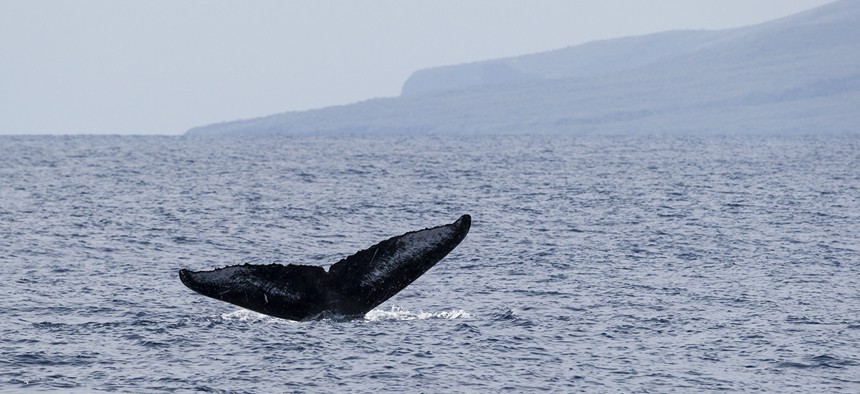
mdd/Shutterstock.com
What If the Oceans Were National Parks?
Ocean conservationists want to bring the same approach to the ocean that the century-old National Park Service brought to the land.
ASPEN, Colo.—Next year will mark the centennial of the U.S. National Park Service. In the 100 years since it was established, the national parks have become one of America’s most popular federal programs. Now, marine scientists and conservationists want to do for the oceans what the National Park Service did for the land.
When the National Park Service was proposed, “it was a really crazy notion,” said Jane Lubchenco, prominent marine scientist and former administrator of NOAA, to an audience at the Aspen Ideas Festival. “It was so far from people’s thinking that wilderness was important to protect in and of itself.” Parks and other wilderness now define the American landscape, Lubchenco said. Today, she said, we think about the oceans the way we thought about wilderness 100 years ago, when few Americans had ever visited Yosemite or Yellowstone.
“Fourteen percent of land—all around the world, all countries—is set aside in some kind of protected status,” Lubchenco said. The equivalent for oceans? 3.4 percent, according to the World Database on Protected Areas. And of that, Lubchenco pointed out, only one percent is fully closed off from extractive activities such as fishing.
Half a century ago, we thought the oceans were too big to fail, said Sylvia Earle, Lubchenco’s co-panelist. “But under the surface, it’s shocking.” Earle, NOAA’s first female chief scientist, is a National Geographic explorer-in-residence. The oysters of Chesapeake Bay, she said, have declined to one percent of their historic population, because of factors such as overfishing and pollution. “How long till we get to the point where we can eliminate whole categories of wildlife?” she asked.
But Earle, Lubchenco, and the session’s facilitator, Andy Revkin of The New York Times, struck a surprisingly optimistic note about prospects for oceans worldwide. Last year, after all, only two percent of the oceans were covered by what’s called a “marine protected area,” or MPA. A big part of the jump from two percent to 3.4 percent was the decision by New Caledonia to designate an area three times the size of Germany as a protected area. And although only one percent may be fully protected, Lubchenco said, “a decade ago that was .1 percent.”
Designating oceans as national parks isn’t a new idea. But recent years have seen some more dramatic moves by nations like New Caledonia to protect ocean habitat. In March, the U.K. confirmed the creation of the world’s largest continuous marine reserve around the Pitcairn Islands. Last year, the tiny island nation of Palau proposed the world’s first National Marine Sanctuary.
American leaders have been getting hip to the importance of protecting the oceans as well, the panelists pointed out. Toward the end of his presidency, George W. Bush invoked the Antiquities Act of 1906 to protect more than195,000 square miles of ocean habitat. In all, Bush protected more than 333,000 square miles of the ocean. President Obama has built on President Bush’s work, expanding one area in the Central Pacific to an expanse three times the size of California.
Of course, all ocean is not created equal, as Svati Kirsten Narula pointed out inThe Atlantic last April:
In February, the marine geographer Rodolphe Devillers and other researchers published a study asserting that the majority of MPAs are "residual"—established in locations of convenience rather than in places where they could actually do good. Creating a "no-take" marine reserve sounds like a significant action, unless you choose to locate it in a corner of the ocean where no one wants to fish or drill, and where there are few species in need of protection.
However, “we’re not focused only on protected areas,” said Lubchenco. “We also believe that we need to do a better job of using the rest of the oceans without using them up.”
“The ocean touches you, with every breath you take, every drop of water you drink,” Earle told the audience at Aspen. “We are sea creatures every bit as much as dolphins,” she said. “Whatever your idea of why the ocean matters, think of this. The most important thing we take from the ocean, we extract from the sea, is … our existence, our lives, our very existence depends on the presence of an ocean that works in our favor.”
(Image via mdd/Shutterstock.com)






